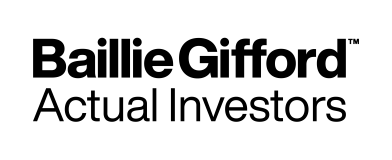HUB EXCLUSIVES PANEL DISCUSSION 2022 – THE EVOLVING ESG LANDSCAPE
Panel discussion, hosted by Cherry Reynard, with:
Sandra Carlisle – Head of Sustainability, Jupiter Asset Management
Matthew Jennings – Investment Director, Sustainable Investing Team, Fidelity International
Rosie Rankin – Director, Positive Change Specialist, Baillie Gifford
The war in Ukraine will have far-reaching ramifications for the economic and geopolitical landscape for some time to come. It has also pushed governments, corporates and individuals to look at the way they source and use natural resources. How is the crisis affecting the sustainable investment landscape?
The most obvious impact is in a renewed drive towards sustainable energy. The crisis has exposed the vulnerability of countries reliant on Russia – or any other unstable nation - for their energy needs. Whereas the move to renewables seemed like a good option for the long-term health of the planet, it now seems a necessity for economic and social stability.
This has prompted significant communication from governments across Europe on their energy strategy. Matthew Jennings, an investment director at Fidelity International, says: “Germany has led the pack, bringing its net zero target forward from 2040 to 2035. The EU released an updated energy strategy “Repower EU”. In reality, this is largely a repackaging of existing strategy with more ambitious timing. The UK has made similar statements. A lot of what we’re hearing is familiar, but with greater urgency.”
However, he adds, while governments have been talking tough on renewables, tangible outcomes are not as forthcoming. He says: “There are some challenging obstacles that face us in terms of achieving that transition to renewables. Storing energy to use on cold, sunless, windless days is a problem, for example. There remains no killer solution, but there are things in development. The cost of renewables has come down dramatically. There are signs of progress, but we have a long way to go.”
Agriculture
A less widely-discussed impact from the war has been the hit to agriculture. Russia and Ukraine are among the top five exporters of seeds and cereals, from barley to sunflowers. Russia is also the largest producer of fertiliser, where the price has doubled. It stands to reason that if farmers use less fertiliser, yields may be lower, which will put further pressure on prices.
Rosie Rankin, a director on the Positive Change Strategy at Baillie Gifford says agriculture has been an interesting area for a number of years: “The world’s population is expected to increase to around 10bn by the middle of this century, which will put huge pressure on existing food systems and from an environmental and social perspective, there is a tension between the imperative of feeding that population and the environmental consequences of intensive food production. In the last few years, the number of people who are acutely food insecure has doubled to around 300m.”.
There are likely to be opportunities for companies that can improve the productivity of the natural system through precision agriculture or vertical farming or companies looking at alternative food stuffs such as plant or insect based proteins. The Baillie Gifford Positive Change portfolio has a number of these holdings. Rankin adds: “Over the long-term, I think these innovations will help us transition, but they don’t help us address the short-term challenges, so we are likely to see food shortages and I think, rising inequalities. Food shortages will affect those who can least afford it.” Investors need to factor this into their economic assumptions.
The question of exclusions
Many sustainable portfolios naturally exclude certain segments, such as tobacco, pornography and weapons. The Ukraine crisis has highlighted the grey areas for some of these exclusions. Without weapons, for example, the Ukrainian people would not have been able to defend themselves against Russia’s onslaught.
Should the crisis change the prevailing view on exclusions? - Sandra Carlisle, head of sustainability at Jupiter, says: “Does Ukraine as a sovereign nation have the right to defend itself? Of course. However, for some investors an absolute exclusion on defence is a necessity. I would suggest that the discourse on defence is being looked at in the wrong way. It’s very topical, but it’s because we have an idea that there are certain ESG sectors or stocks and I’m not sure there is such a thing any more. ESG is an analytical framework that helps an investor make a more informed and holistic decision.
“For any investor, they need to decide whether to take an absolutist view or acknowledge that self-defence and protecting people and territory is something that all sovereign nations would expect to do. It’s different if you’re using weapons banned by law. We all follow the conventions on illegal and controversial weapons.”
The Ukraine crisis has brought many of the issues already highlighted by sustainable investors to the fore: the need for an energy transition, for sustainable agriculture and for sensible exclusions. In the long-term, it validates this approach to investment.









